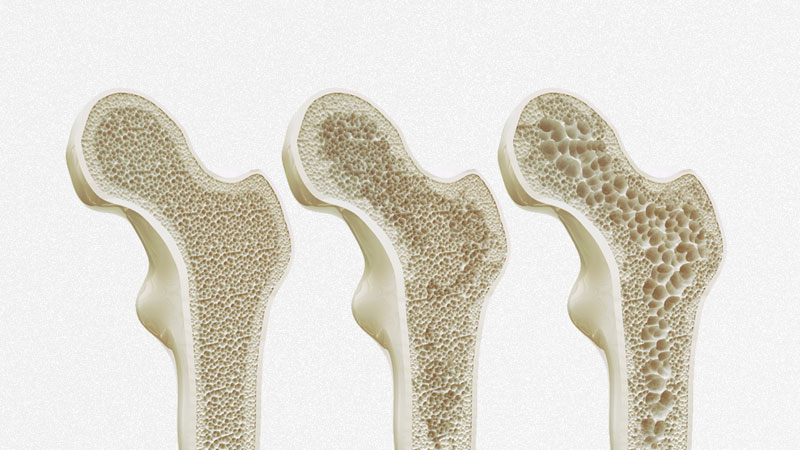It’s time to remind you of the significance of this structural
system, which plays a crucial role in supporting your body, helps to form your shape and also helps in protecting your internal organs. Take care of your bone health!
What is Osteoporosis?
Osteoporosis is a condition where bones become fragile and prone to fractures. It occurs when the density and quality of bone are reduced, making them more porous and brittle.
Why do we have it?
Your genes play a significant role in determining the potential size and strength of your skeleton. The interplay of genetic factors influences how your bones develop and maintain density. While genetics set the stage, lifestyle choices, nutrition and weight bearing exercise also play pivotal roles in ensuring your bones remain robust and resilient.
Medications such as long term oral steroids and anti-acid medication, early menopause, low body mass and low vitamin D or calcium levels can increase the risks.
At what age does it start?
Around your late thirties, the natural decrease in bone tissue begins. While bone density peaks in the early 20s, this gradual decline underscores the importance of proactively prioritizing bone health early on.
Osteoporosis may not have any signs initially, but low bone density can lead to bones that are easily broken, for example from an insignificant fall.
These clues often become noticeable later in life, usually after the age of 65. Therefore it’s essential to foster bone health throughout life to minimize these risks.
If suspected to be low, bone density can be checked using a DEXA X-ray scan.
Visit your doctor for personalized advice and early detection of osteoporosis.

